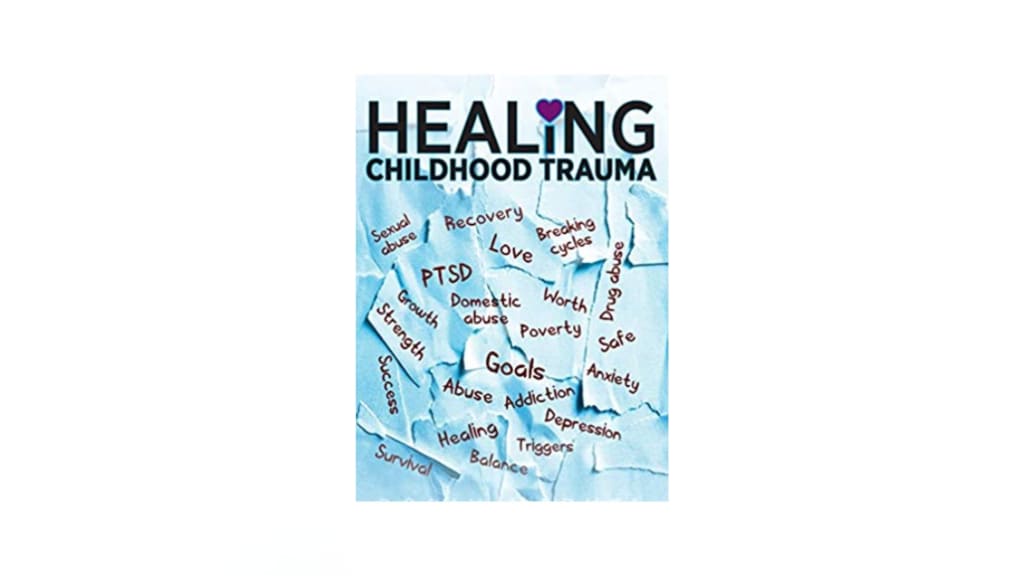
Healing from childhood trauma is a deeply personal and transformative journey. It requires compassion, patience, and a commitment to self-care. In this blog post, we will explore 50 powerful ways to support your healing process and reclaim your inner strength. Remember, healing takes time, and each step forward is a testament to your resilience and courage.
1. Seek Professional Help: Reach out to therapists, counselors, or psychologists who specialize in trauma to guide you through the healing process.
2. Practice Mindfulness: Engage in mindfulness techniques such as deep breathing, meditation, and grounding exercises to reconnect with the present moment.
3. Journaling: Write about your feelings, experiences, and reflections to gain insight and release emotions.
4. Art Therapy: Express your emotions through art, painting, drawing, or any other creative outlet.
5. Join Support Groups: Connect with others who have experienced similar traumas to share experiences, gain support, and feel less alone.
6. Establish Boundaries: Set clear boundaries with others to protect your emotional well-being.
7. Establish a Self-Care Routine: Prioritize activities that nourish your body, mind, and soul, such as exercise, adequate sleep, and healthy eating.
8. Practice Gratitude: Cultivate a gratitude practice by acknowledging the positive aspects of your life.
9. Seek Validation: Surround yourself with supportive and understanding individuals who validate your experiences and emotions.
10. Engage in Therapy Modalities: Explore various therapeutic approaches, such as cognitive-behavioral therapy (CBT), Eye Movement Desensitization and Reprocessing (EMDR), or somatic experiencing, to find what works best for you.
11. Read Self-Help Books: Gain knowledge and insight from books that focus on healing from childhood trauma.
12. Practice Self-Compassion: Treat yourself with kindness, compassion, and understanding throughout your healing journey.
13. Connect with Nature: Spend time outdoors, connecting with the healing power of nature.
14. Establish Healthy Relationships: Surround yourself with people who respect and support your healing process.
15. Learn Stress Management Techniques: Incorporate stress-reducing activities like yoga, deep breathing, or progressive muscle relaxation into your routine.
16. Practice Emotional Regulation: Learn techniques to identify, understand, and manage your emotions effectively.
17. Develop Self-Awareness: Reflect on your triggers, patterns, and behaviors to gain a deeper understanding of yourself.
18. Release Anger and Resentment: Engage in healthy outlets for anger, such as physical exercise or constructive conversations.
19. Engage in Inner Child Work: Connect with your inner child through visualization, dialogue, or creative activities to nurture and heal the wounded parts.
20. Practice Forgiveness: Consider forgiving those who have caused harm as a way to release resentment and promote inner peace.
21. Explore Energy Healing: Discover modalities like Reiki, acupuncture, or energy psychology to balance and heal your energy system.
22. Learn Stress Reduction Techniques: Incorporate activities like aromatherapy, listening to soothing music, or taking relaxing baths into your routine.
23. Engage in Self-Reflection: Engage in introspective practices like self-reflection, self-inquiry, or introspective journaling.
24. Cultivate Positive Affirmations: Develop positive self-talk and affirmations to counteract negative beliefs and self-perceptions.
25. Engage in Body-Based Therapies: Explore therapies like massage, acupuncture, or body-centered psychotherapy to release stored trauma in the body.
26. Set Realistic Goals: Break down your healing journey into manageable steps and celebrate each milestone along the way.
27. Foster Healthy Coping Mechanisms: Develop healthy coping strategies, such as deep breathing, journaling, or engaging in hobbies, to manage stress and triggers.
28. Engage in Play and Laughter: Allow yourself to experience joy and engage in playful activities that bring you happiness.
29. Practice Boundary-Setting Exercises: Role-play scenarios to practice setting and enforcing healthy boundaries.
30. Volunteer or Give Back: Engage in acts of kindness and service to others, fostering a sense of purpose and connection.
31. Create a Safe Space: Dedicate a physical space where you feel safe, calm, and grounded, and retreat to it when needed.
32. Connect with Spirituality: Explore practices like prayer, meditation, or connecting with a higher power to find solace and guidance.
33. Develop Healthy Coping Strategies: Replace harmful coping mechanisms with healthier alternatives, such as exercise, creative expression, or seeking support.
34. Release Shame and Guilt: Recognize that you are not to blame for what happened and work on releasing any shame or guilt associated with the trauma.
35. Engage in Emotional Release Exercises: Allow yourself to express emotions through crying, screaming into a pillow, or engaging in cathartic activities.
36. Practice Self-Reflection: Set aside time for self-reflection and introspection to gain insights into your thought patterns, beliefs, and behaviors.
37. Connect with Animals: Spend time with animals, such as pets or therapy animals, to experience unconditional love and support.
38. Practice Emotional Freedom Technique (EFT): Utilize EFT, also known as tapping, to release emotional blockages and promote healing.
39. Practice Mind-Body Techniques: Explore practices like yoga, Tai Chi, or Qigong to promote mind-body integration and healing.
40. Create a Vision Board: Visualize and manifest your healing journey by creating a vision board that represents your goals and aspirations.
41. Engage in Inner Healing Dialogue: Practice having compassionate conversations with your inner child or wounded self to provide comfort and support.
42. Explore Trauma-Informed Yoga: Participate in trauma-informed yoga classes designed to promote healing and resilience.
43. Practice Progressive Muscle Relaxation: Learn and practice techniques to relax your muscles and release tension from your body.
44. Engage in Expressive Writing: Use writing as a therapeutic tool to express your emotions, fears, and desires.
45. Practice Self-Reflection: Regularly review your progress, celebrate achievements, and adjust your healing strategies as needed.
46. Explore Energetic Clearing: Learn techniques such as smudging, crystal healing, or sound healing to clear stagnant energy and promote balance.
47. Cultivate Positive Relationships: Surround yourself with individuals who uplift and support your healing journey.
48. Engage in Self-Defense Training: Build confidence and empower yourself through self-defense classes or martial arts training.
49. Create a Daily Affirmation Practice: Start each day by affirming positive statements that support your healing and growth.
50. Celebrate Your Progress: Acknowledge and celebrate every milestone and step forward on your healing journey.
Healing from childhood trauma is a complex and deeply personal process. The path to healing requires patience, self-compassion, and a multifaceted approach that addresses emotional, mental, and physical well-being. By incorporating these 50 healing strategies into your life, you can take significant steps towards reclaiming your inner strength, fostering resilience, and creating a brighter future. Remember, you are deserving of healing, and with time, support, and self-care, you can embark on a transformative journey towards wholeness.
About the Creator
Taj Padda
Hello, I'm Taj, an avid writer and knowledge enthusiast.






Comments
There are no comments for this story
Be the first to respond and start the conversation.